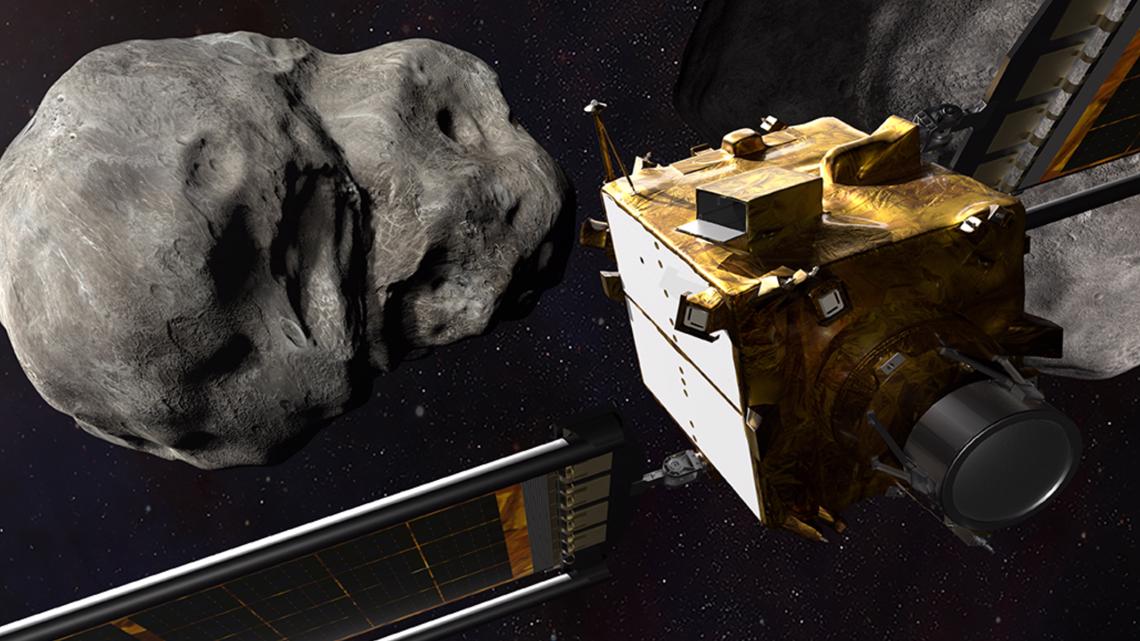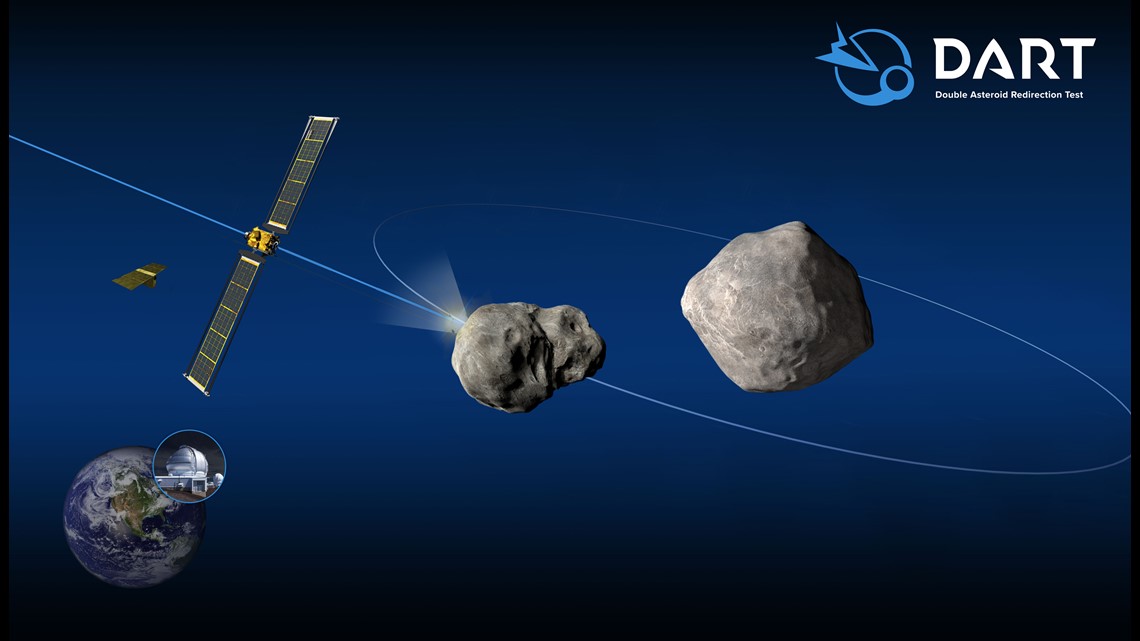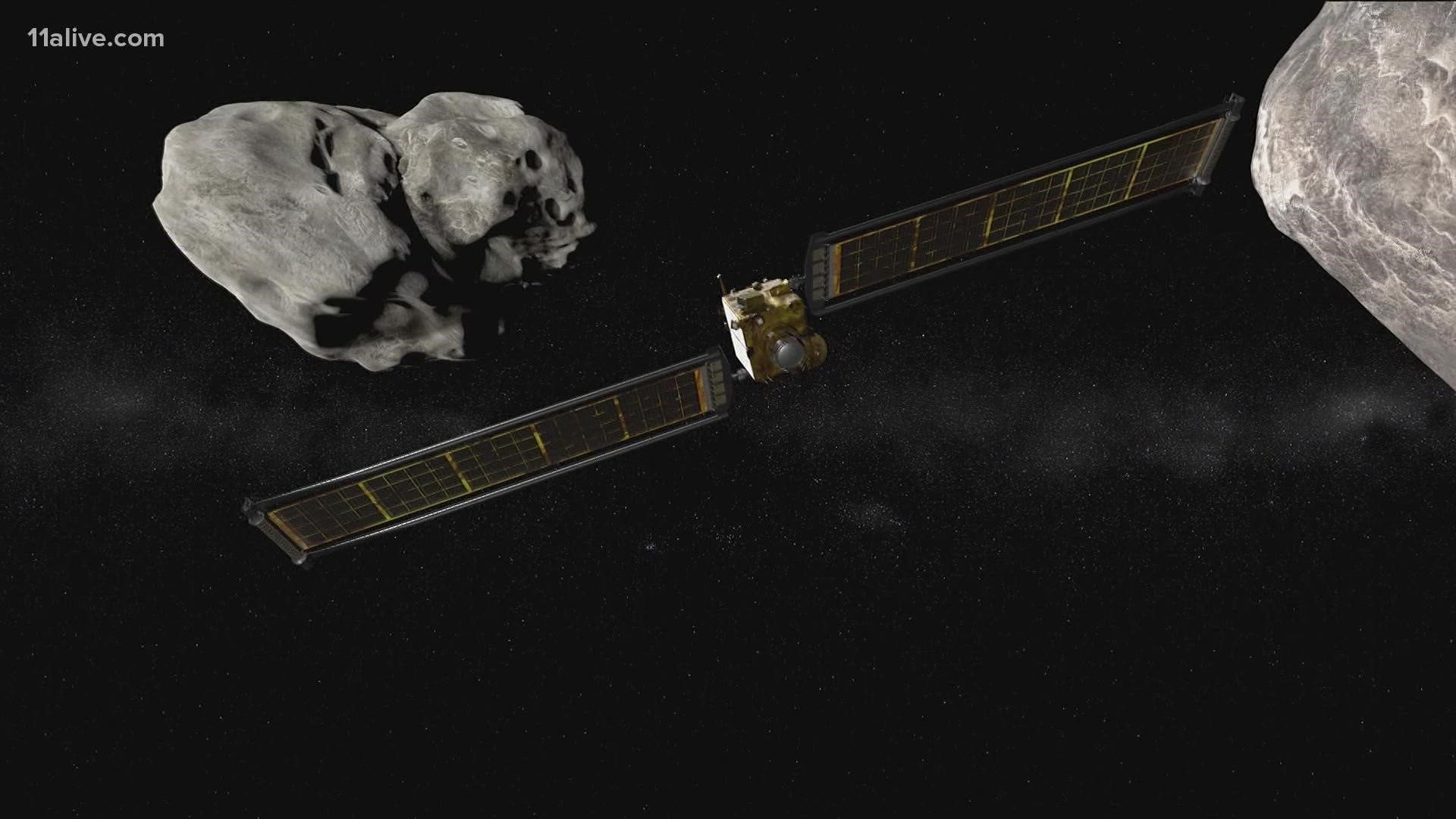ATLANTA — NASA will soon launch its first ever test of planetary defense into space.
The DART mission, which stands for Double Asteroid Redirection Test, will travel 6.8 million miles away from Earth to purposefully collide into an asteroid.
The DART mission will be testing its kinetic impactor technology. In the test, the spacecraft will impact the asteroid nearly head-on at a speed of 6.6 meters per second or about 15 miles per hour. This will be enough to slightly changing its trajectory and orbit.
The impacted asteroid, Dimorphos, is known as a moonlet and is part of a binary asteroid. It orbits around its larger asteroid counterpart, Didymos. When the DART mission crashes into Dimorphos, telescopes on Earth will observe the change orbit time around Didymos, confirming the success of the mission.


Neither asteroid is expected to be a close call for earth. Nor is any asteroid, larger than 140 meters in size known of, at this point. There are hundreds of thousands of asteroids in our solar system – but we only know of about 40% of them.
This DART mission is an opportunity to see if intentionally crashing a spacecraft into an asteroid is an effective way to change its course, should an Earth-threatening asteroid be discovered in the future.
RELATED: 'We did all we could, but it wasn't enough' | Asteroid simulation ends with direct hit in NYC


DART is scheduled to launch on the SpaceX Falcon 9 rocket from Vandenberg Space Force Base in California this coming week.
The Launch window opens Nov. 24 at 1:20 a.m. EST. The journey to the asteroid Dimorphos will take 9 months with a scheduled arrival of September of 2022.

